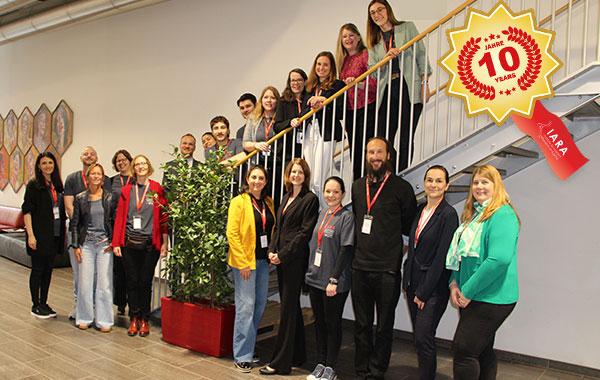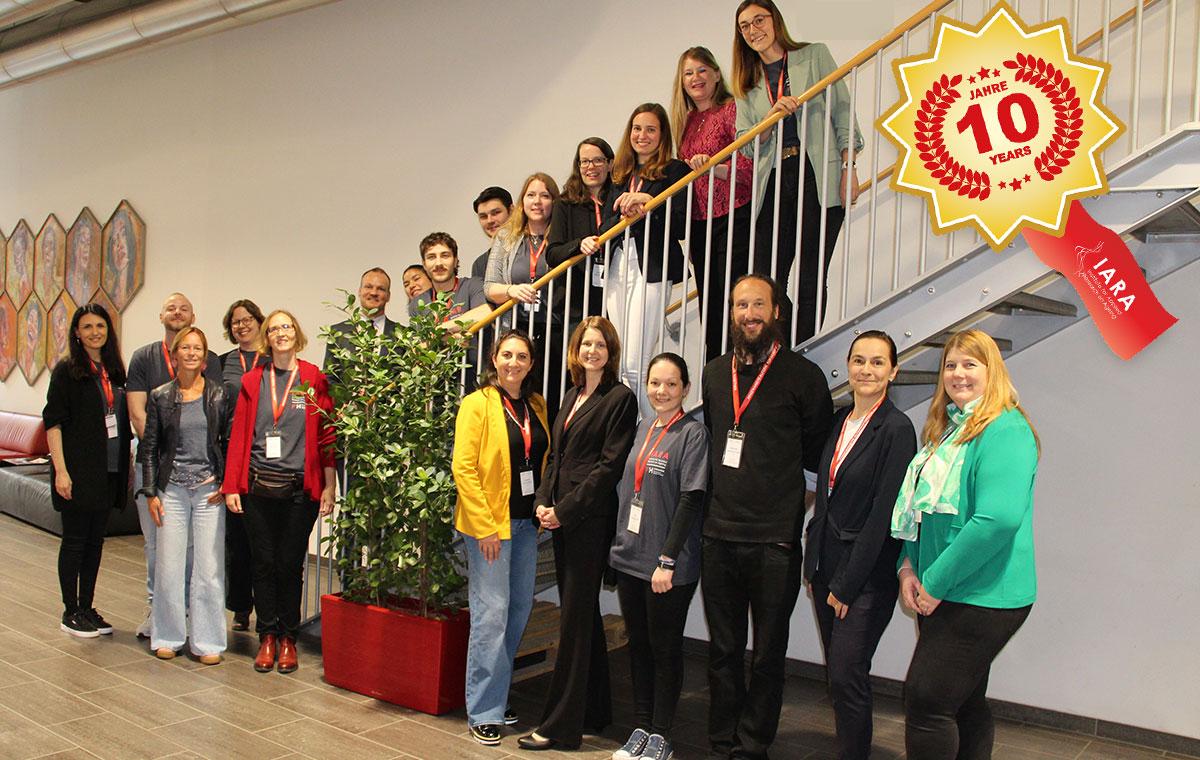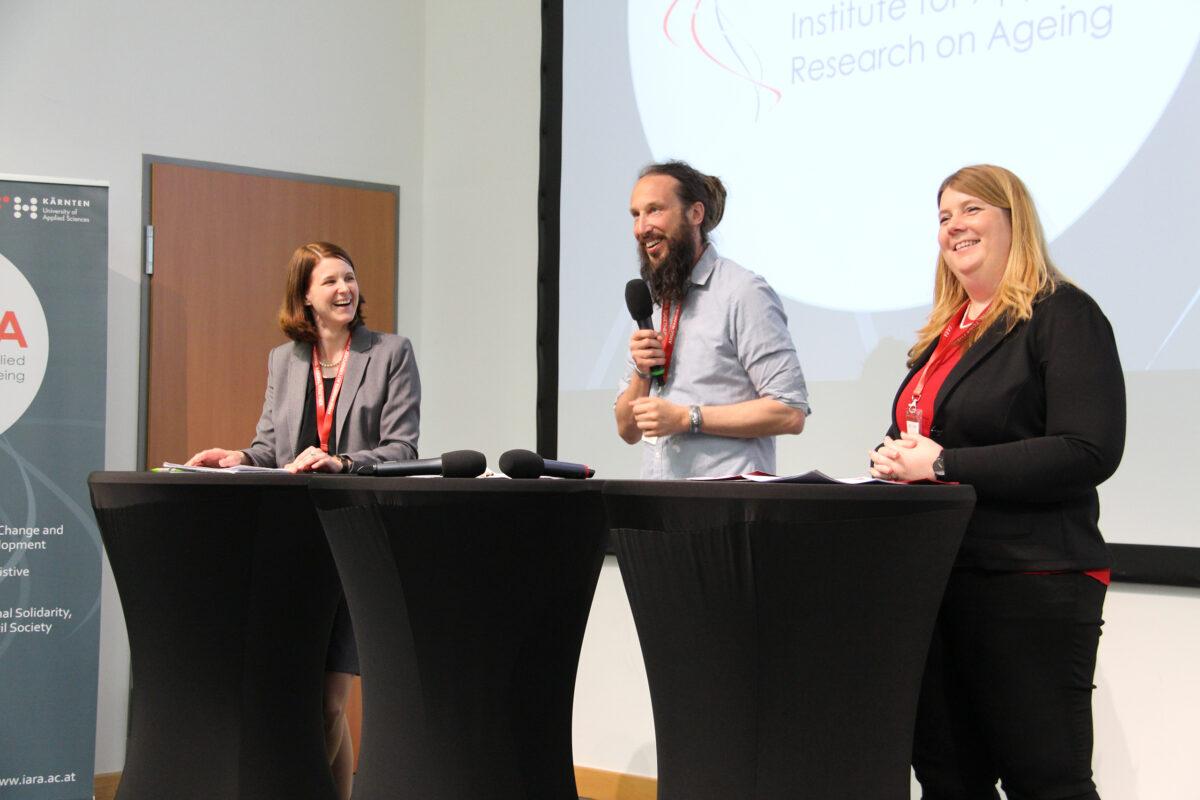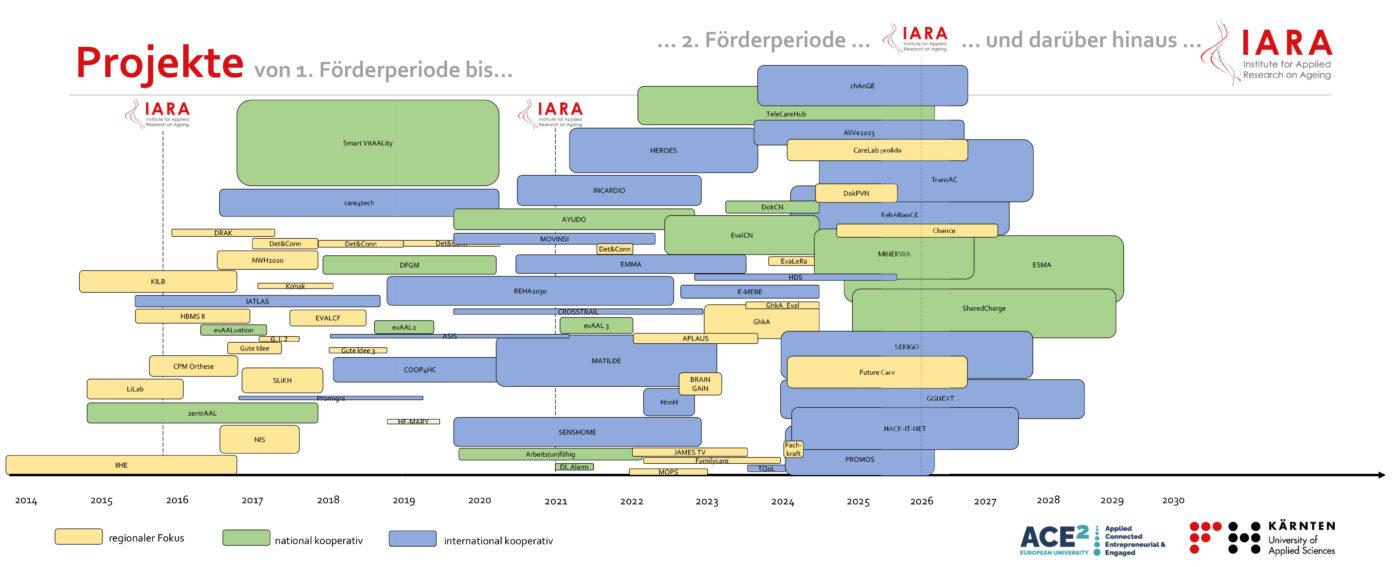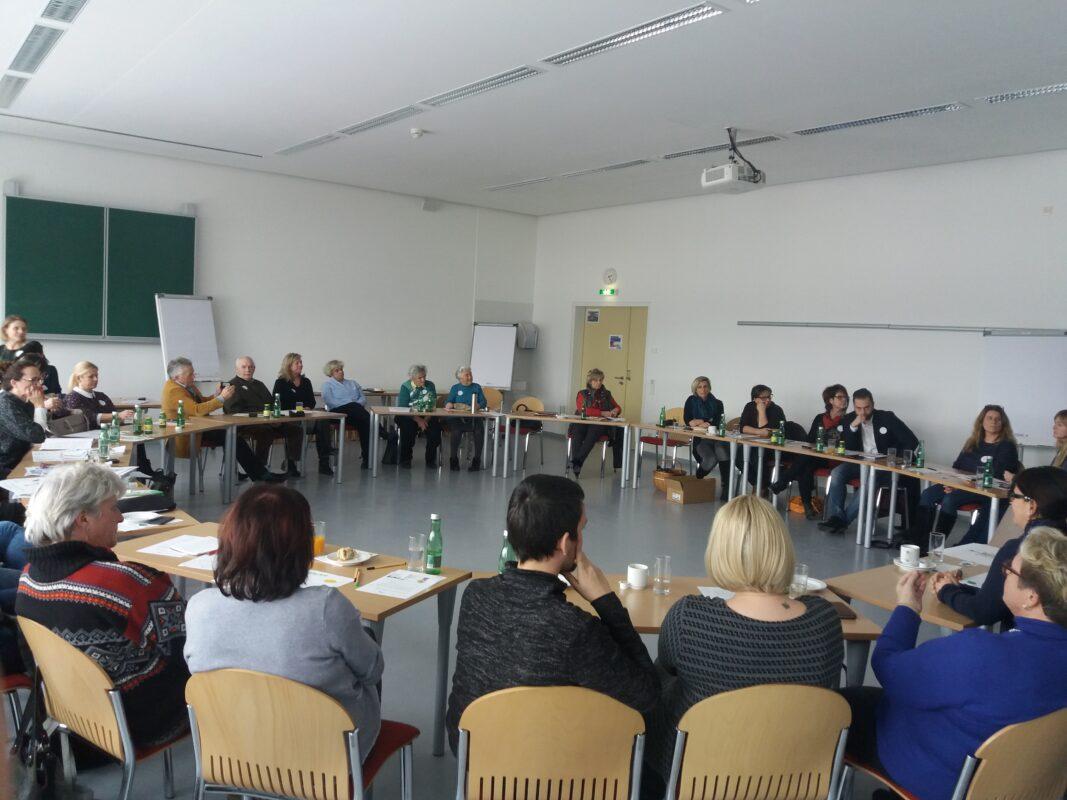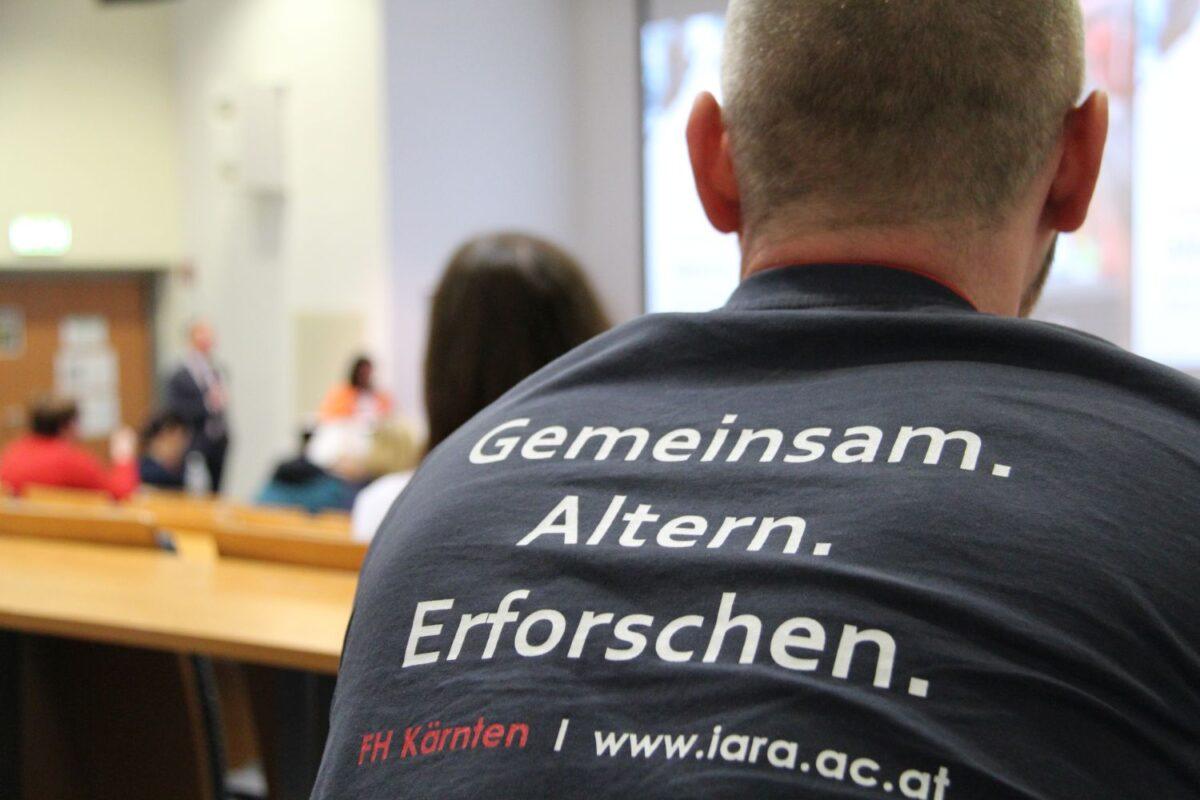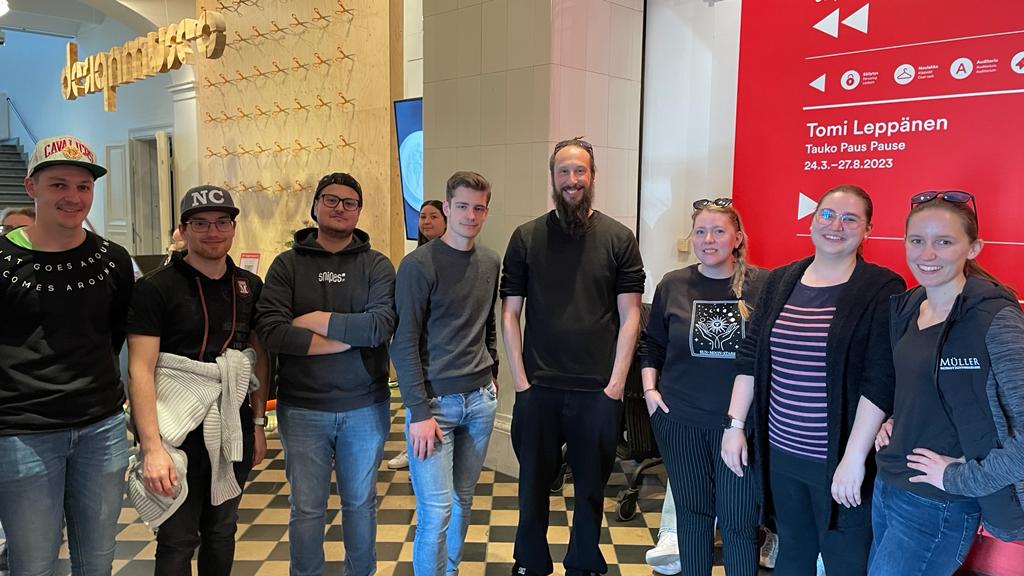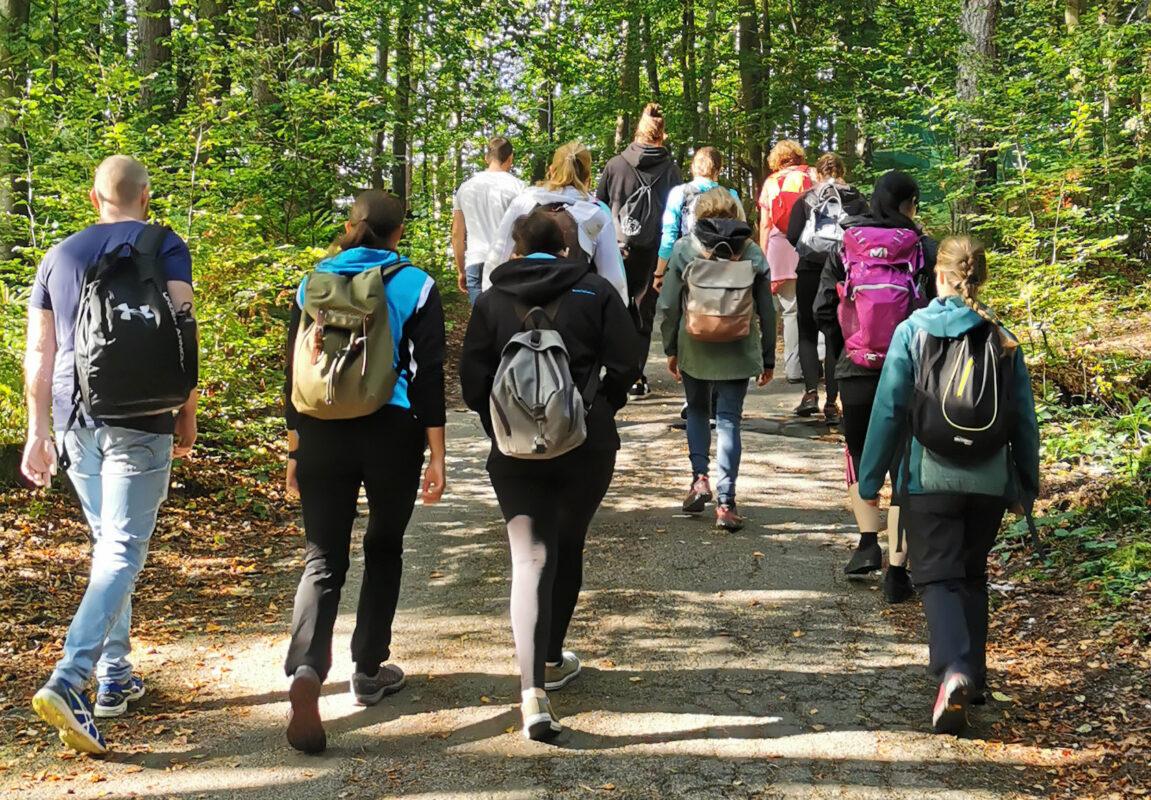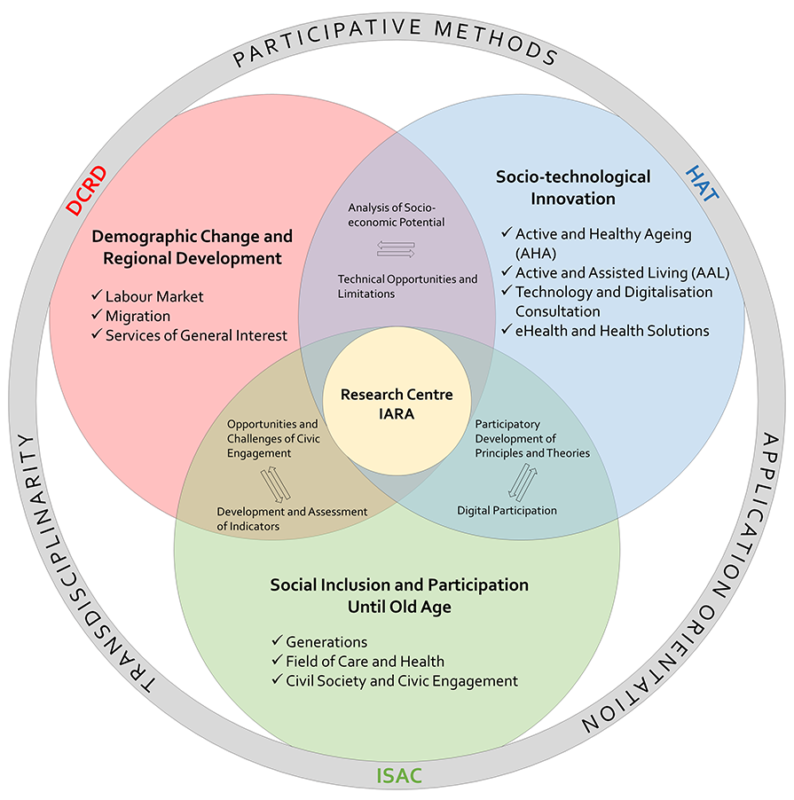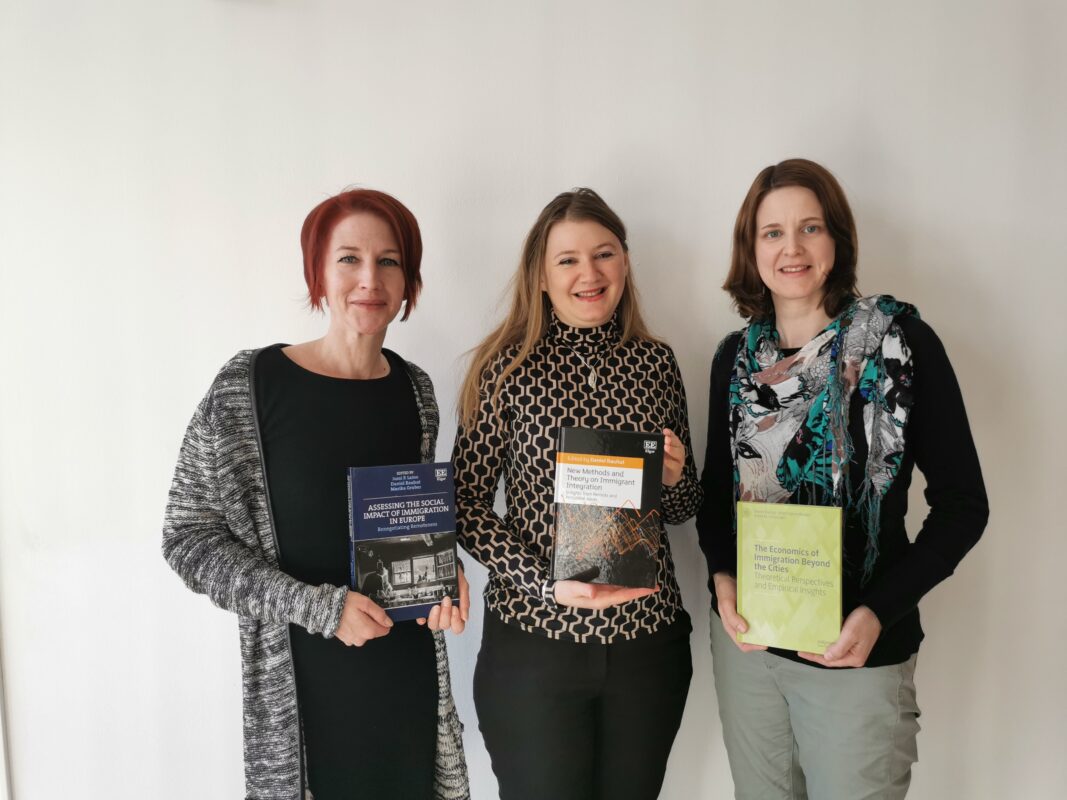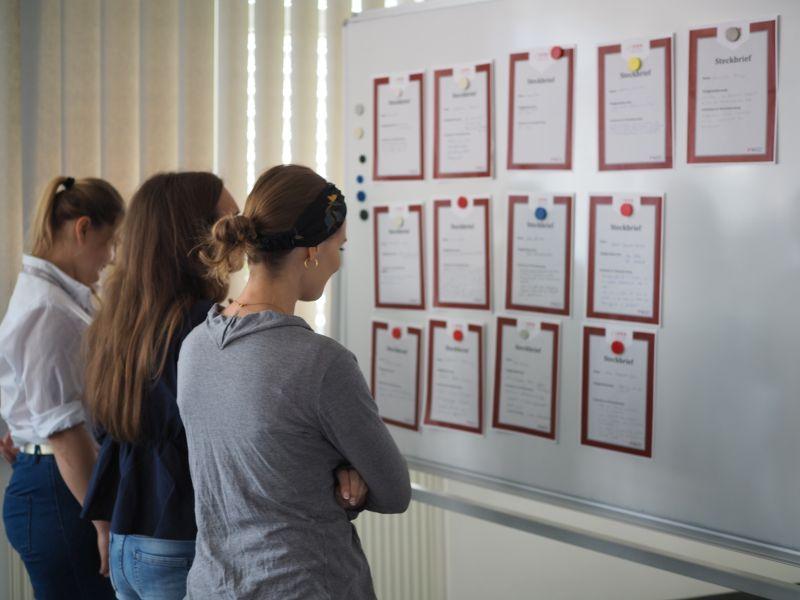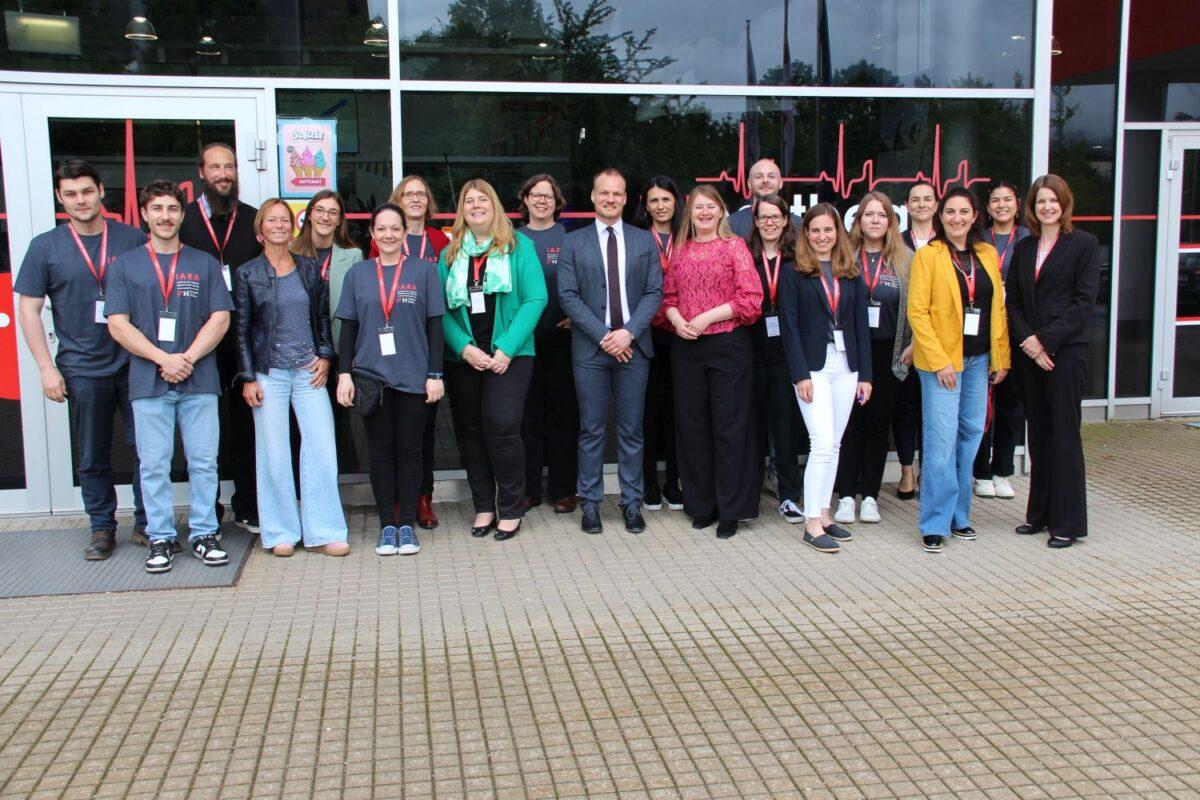10 years | Ageing Research | Success | Continuation | 3rd funding period |
The Institute for Applied Research on Ageing (IARA) has been in existence at Carinthia University of Applied Sciences (CUAS) since 2016. Based on three departments, it has been conducting interdisciplinary, transdisciplinary, applied and participative research on ageing and on the challenges and potentials of an ageing society. The focus is on the quality of life and social participation of older people, technical support solutions for everyday life and participative technology development, as well as on economic and demographic framework conditions.
Ageing research at Carinthia University of Applied Sciences celebrates 10 successful years and looks to the future
The anniversary year was already celebrated in spring with the IARA Conference 2025. Looking back on 10 years of research into population ageing, economic effects, technological solutions and lifeworlds in old age, one thing is particularly striking: Whereas 10 years ago there were still considerable reservations about telemedicine and telecare, today the focus is primarily on their sensible use in combination with personal care and on cost-effective, low-threshold solutions in the field of healthcare and nursing.
Foto: IARA team, IARA conference 2025
We are glad if we have been able to contribute to this and to other fields of ageing research. The scientific management team at IARA – Birgit Aigner-Walder, Johannes Oberzaucher and Christine Dullnig-Pichler – put it this way:
‘The 10th anniversary fills us with great joy and also pride. We want to continue on this path of cooperation across research and professional fields, regionally, nationally and internationally, in the future as well.’
A look back at 10 years of IARA & the status quo in figures
- 25 IARA team members with different functions & roles
- 64 projects with a regional, national or international focus
- EUR 5.4 million of third-party funding
Figure: Projects from the 1st funding period to… the 2nd funding period… and beyond… (yellow: regional focus; green: national cooperation; blue: international cooperation)
- Over 5,000 private individuals involved in practice-oriented research
- Over 100 publications
- Over 250 lectures
- 6 interdisciplinary IARA conferences
- 48 IARA research colloquium meetings (in person or online)
- 4 issues of the Working Paper Series
- 6 issues of the scientific newsletter Alternsforschung Aktuell (‘Ageing Research News’)
- Over 50 interdisciplinary courses on ageing research
- Over 100 supervised master’s/bachelor’s theses on ageing research
The IARA has thus fulfilled and, in many areas, exceeded the strategic target indicators for the 1st and 2nd funding periods (2016-2020 & 2021-2025). The expertise and cross-disciplinary research activities of the IARA are not only valued regionally and nationally, but also attract international attention. We cooperate with numerous partners in Austria and abroad who share our mission and our interest in a wide range of research questions. In recent years, IARA has made good progress, particularly in terms of its participative, practice-oriented approach and transdisciplinary cooperation, which has also led to the successful acquisition of projects.
Furthermore, we are increasingly successful in interlinking research and teaching and involving students in research and project work, and we are delighted to have young scientists in our research team.
We have been able to improve our external visibility through our presence at a number of different events in cooperation with civil society, companies, politics and administration, and through media coverage of our work.
Objectives & mission for the 3rd funding period 2026-2030
We intend to continue and intensify our collaboration with numerous partners in the coming years. In the next funding period from 2026 to 2030, IARA will maintain its mission of improving the social, health and economic situation of older people through application-oriented research.
Our main goals for the third funding period are as follows:
- In the first place are qualitative growth and further development. In our experience, this also leads to steady quantitative growth.
- Deepening existing research priorities and strengthening our three departments
- Strengthening and expanding expertise in interdisciplinary and transdisciplinary research
- High-quality publications
- High-quality international research
- IARA meets ACE2EU: Networking and knowledge transfer as well as project and publication cooperation in the field of ageing between IARA and the European University Alliance ACE2EU, which Carinthia University of Applied Sciences (CUAS) co-founded in 2024. Active participation and involvement in ACE2EU activities and formats such as the Applied Research, Development, and Innovation Centre ‘Health & Well-Being’ and other measures in this field.
- Continuation of existing IARA formats: Research colloquium, IARA conference, IARA Working Paper Series, Ageing Research News
- and much more …
‘The future is very open and depends on us, on all of us.’
Sir Karl Popper
Cooperation & Contact
We look forward to establishing cooperation with you as well – whether you are a student, research institution, company, civil society organisation, citizen, or decision-maker in politics or administration – let us engage in dialogue.
Let us discuss shared interests and concerns that may develop into a common idea and joint activity. We are happy to answer any questions or suggestions you may have.


 Deutsch
Deutsch
